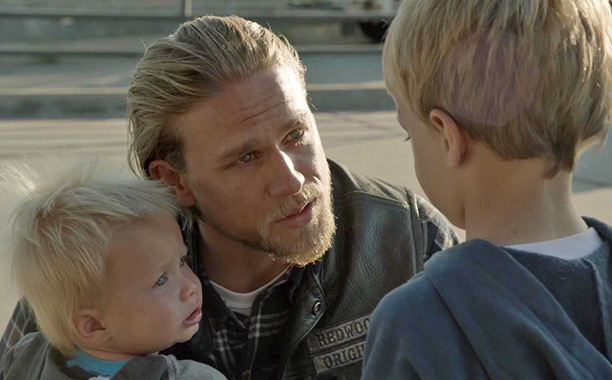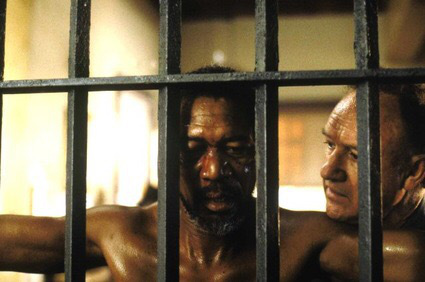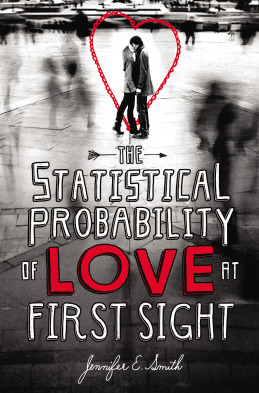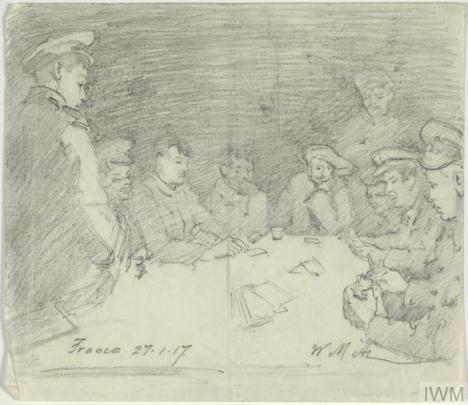
Just about the hardest thing a writer can do is bringing a bad story back from the dead. It’s difficult on a number of levels. First, if we think we’ve done everything right, i.e. we came up with an idea, outlined, and then we actually wrote it, and it still doesn’t work then we question our whole process. Second, sometimes we don’t even see the problems until we read it a month later and wonder what the hell we were thinking altogether.
None of that matters.The truth is most first drafts are pretty horrible. Then can be horrible for a number of reasons. We could’ve strayed too far from our original idea and have an ending that doesn’t connect to the beginning. We could’ve stayed to loyal to the original idea and not followed logical plot lines when they were made available. This can be particularly painful if we didn’t make notes while we were writing and have no idea where we were supposed to have gone.
You could have unlikeable characters, or unrealistic characters. You could have serious characters that are supposed to be funny or funny characters that are supposed to be serious. There could be bad scenes or unnecessary scenes. And there could be massive plot holes staring you in the face, making you question what kind of an idiot would allow that.

And there’s going to be bad writing. There’s going to be things that make you absolutely cringe. You will look at the writing and realize that Hemingway never dealt with this. You will convince yourself that every Stephen King novel went directly from Kong’s typewriter to the publisher, untouched.
None of that is true.Every professional writer will tell you that great writing comes in the revision process. And they’ll tell you that it’s about giving your writing over to that process.
The first thing you have to do is give your writing to someone else to read. Someone else will find plenty of mistakes for you and they’ll almost always tell you where it’s good, which is what you really need at this point. You need an affirmation.
And then you deal with the kick in the nuts that follows. Not only will this reader find all the crap you found, they’ll find about a dozen more pieces of crap you didn’t. At first you’ll disagree with them. Fight this urge. Listen to them. You’re not building mausoleums, you’re writing books. And books are meant to be read. If enough readers tell you that what you’re writing is crap, then they’re probably right.
The rule of the office partyHere’s the rule of the Office Party: If three people tell you that you need to sit down, then you’re probably drunk. If someone tells you that you’re acting like an asshole, you don’t just say “no I’m not” and expect that to be the end of it.

The other thing you have to have is freedom. Freedom to do anything that you like. That’s what’s great about rough drafts, or writing in general, for that matter. You’re in complete control of this creation. You can make the characters do whatever you want. You can make the environment do whatever you want. You have to give yourself the freedom to do stupid crazy stuff. And then you bring things to reality in the rewrite
Here are some good rules to follow when rewriting Make things bad for your protagonistYou’ve probably been to easy on your protagonist. In your eagerness to finish the story, you didn’t really put him through the wringer. This can be difficult to fix. In some cases it may take a complete rewrite. At the very least, you’re going to need to make major changes to key scenes. And then probably go back and adjust other items to make sure you don’t have continuity problems. In the future, you can solve this by being more patient and trusting that the rough draft process can be long. Take your time to figure things out when you get stuck.

I like to write about the problem itself while I’m writing. On my current WIP, I was trying to figure out how to end a scene between three characters that seemed to be going off the rails. So I stopped and wrote out a note and asked myself what I wanted to write about. In three sentences, I found out what I needed to say and what I would save for later. And then I jumped right back in to the story and finished the scene exactly the way I wanted to.
Then make them even worseMake sure coincidences work against your protagonist. Coincidences are almost never a good idea, but that’s because we use them to get our heroes out of trouble. But when you use them to make things worse, then you’ve got something. Paint yourself into an absolute corner so that there’s no way to get out. Then, take a week and figure out how to get get out of the corner.
Omit unnecessary wordsThis is a bromide for a reason: because it works. Taking words out almost always make sentences better. Don’t believe me? Take the preceding sentence.
Taking words out make sentences better.
I took two words out and made the sentence stronger. Adverbs equivocate, get rid of them. Look for strong verbs rather than using adverbs to modify weak verbs. Get specific. It’s okay to add things when you’re trying to make sense of a problem or make things tough on your protagonist. But you need to trust the mantra: “Omit unnecessary words.”
Are the stakes high enough?One of the biggest mistakes we writers make is we think we’ve told a compelling story, but we don’t make the stakes high enough. Is there a point in your story where it truly feels like all hope is lost and there’s no way for the protagonist to win? Is what the protagonist is fighting for really worth fighting for? Is the antagonist doing this for himself or is it truly something he wants?

If the protagonist is not in peril of losing the battle, the readers going to stop turning the page. The ebbs and flows that you go through have to take the reader on an emotional journey. If you’re telling a story where the protagonist wins in the end, then there has to be a point when it feels like they can’t possibly win. In Breaking Bad, it’s the opposite. At the end of season 5, part 1, it seems as though Walt has finally won when everything begins to crash down around him.

Is what the protagonist wants something someone would realistically fight for? Sure, it may seem like something you would want, but is the ultimate goal something a reasonable person would put value in? You have to find a universal element that people would want to have. This can be love or fame, or it can be as simple as not wanting things to change. But you have to make it feel real. It Sons of Anarchy, all Jax wants is to not be his father, to break the cycle, something all readers can understand.

Is the antagonist’s desire to win a real desire or are you just making it something for the protagonist to fight against? This is where you need to develop three dimensional characters. Your antagonist has to have skin in the game and not want to just win so that the protagonist loses. In the great western, Unforgiven, we understand that Little Bill is not just a bad guy who wants to be tough, but he’s trying to make his town safe in what he sees as a world full of lawlessness.
Other elements that may help• Take some time away from your story.
• Read the story out loud.
• Make an outline (if you haven’t already made one).
I have used all of these in the past, and they’ve helped to varying degrees. Even g you don’t believe in outlining in the front end, making one up after the fact can help find deficiencies in your plot and pacing. Reading out loud really helps find when a sentence is unwieldy. And you should always through the first draft into a desk drawer for a few weeks or months to give yourself some objectivity.
What about you? What techniques do you use that help you when revising?
Advertisements Share this:





